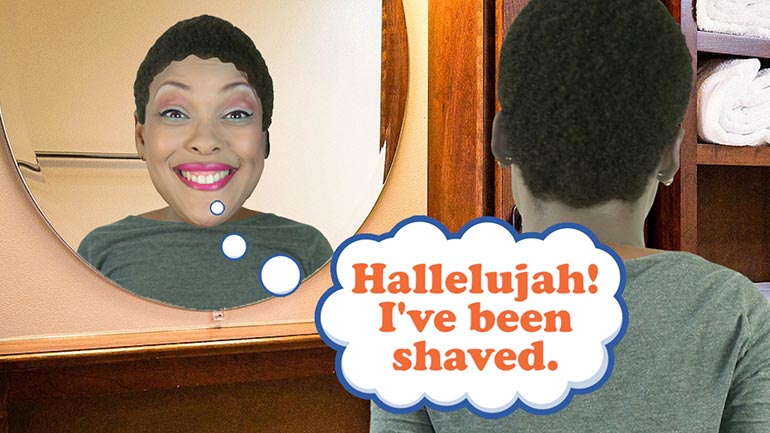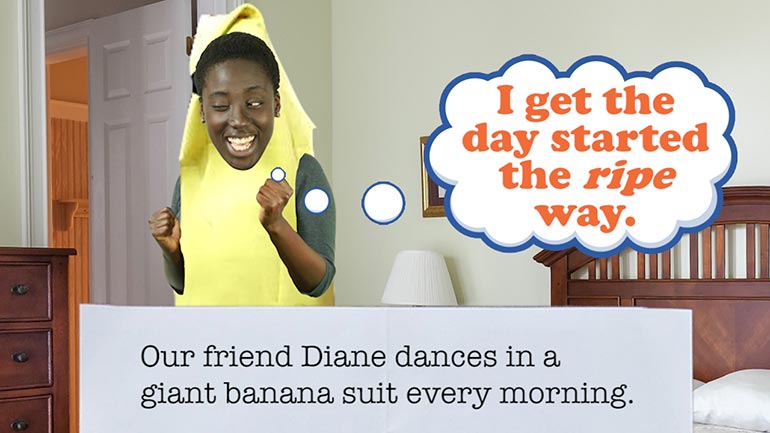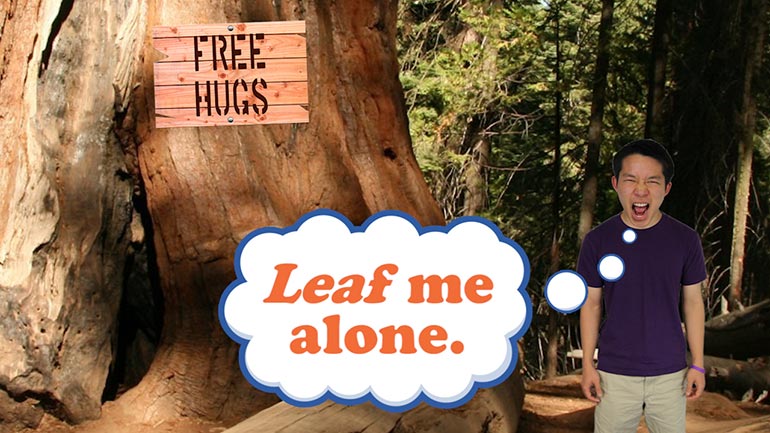ShmoopTube
Where Monty Python meets your 10th grade teacher.
Search Thousands of Shmoop Videos
ELA 4: What Makes an Excellent Introduction? 1023 Views
Share It!
Description:
Personally, we like to be bowed to and have our rings kissed but...oh, we're talking about introductions in your writing. Hm. Better watch the video.
Transcript
- 00:04
[Coop and Dino singing]
- 00:14
“It was a bright cold day in April, and the clocks were striking thirteen.”
- 00:18
How does that line make you feel? A bit spooked, perhaps? [Woman looking spooked]
- 00:21
After all, what kind of a weirdo is putting the number thirteen on his clock?
- 00:25
If it sounds familiar, it may be because it’s the opening line from George Orwell's famous novel, 1984. [George Orwell's novel closes]
Full Transcript
- 00:32
“In a hole in the ground there lived a hobbit.”
- 00:35
You’re probably familiar with hobbits thanks to the Lord of the Rings films, but imagine [Man sleeping on a couch]
- 00:38
you'd never seen them, and you just picked up J.R.R. Tolkien's The Hobbit for the first time ever.
- 00:43
Instantly, the book makes you want to know, “What sort of creature would live in a hole in the ground? [Hobbit walks through a door]
- 00:48
What’s wrong with these hobbit folks?
- 00:50
Do they have an aversion to sunlight or something?”
- 00:52
All right. Finally, listen to this line from Ford Madox Ford's classic 1915 novel, The Good Soldier. [The Good Soldier novel opens]
- 00:59
“This is the saddest story I have ever heard.”
- 01:02
Even if you aren't a big fan of stories that depress the heck out of you, doesn’t that
- 01:06
line make you at least a little bit curious about what might come next? [Man sleeping on a couch wakes up and sits up]
- 01:10
These three passages are all the first lines from famous novels. And part of the reason
- 01:14
they're so powerful is that they leave the reader wanting more.
- 01:17
Of course, ripping out the last five pages will do the trick, too, but…this way is much more effective.
- 01:21
All of this goes to show exactly how important introductions are in your writing. [1984, The Hobbit and The Good Soldier novels]
- 01:25
After all, introductions are what make us choose which books we want to read, which
- 01:29
movies we want to see, and which television shows to keep tuning into each week. [Coop discussing introductions]
- 01:33
Or…binge-watching, or whatever.
- 01:35
If you've ever seen a movie trailer, and we're sure you have,
- 01:37
you’ve basically seen an introduction to the movie.
- 01:40
In the shortest time possible, a trailer tells us what a movie is about, and roughly what [Dino explaining movie trailers]
- 01:44
we can expect, so we can decide if we want to see it or not.
- 01:47
When you're writing something you hope others will want to read – and really, isn't that the point? [Girl reading a book in a library]
- 01:52
- you should think of your opening introduction as a movie trailer. It's where
- 01:55
you let your reader know what your writing is all about. To rope ‘em in, if you can. [Girl gripped by rope and pulled away]
- 02:00
It's for this reason that your introduction should be strong, compelling, and enticing.
- 02:04
It should leave your reader excited and wanting more. [Girl reading a book behind a man riding a horse]
- 02:07
Engaging introductions should make us feel interested, incite emotions, and make us care
- 02:11
about the characters… or simply leave us wondering what might possibly happen next.
- 02:16
Let's say you’re writing a biography about Benjamin Franklin and
- 02:19
want to make your introduction as compelling as possible. [Benjamin Franklin on a 100 dollar bill]
- 02:21
You wouldn't want to simply begin with...
- 02:23
“Benjamin Franklin was a man born in 1706.
- 02:26
He did a lot of things throughout his lifetime before dying in 1790.”
- 02:30
Fascinating.
- 02:31
This intro gets to the point and introduces your character, but does it really make the
- 02:35
reader feel, care or want more? Not so much. [Boy sat at a table with introduction to Benjamin Franklin]
- 02:38
Instead, try to draw the reader in with something interesting and dramatic, like...
- 02:43
“Swirling, dark clouds cast shadows on the rain-drenched earth below. But while most
- 02:48
rational people hid away in their homes, one man by the name of Benjamin Franklin stood
- 02:53
outside and begged for lightning to strike.”
- 02:57
This introduction begins with the story of Benjamin Franklin's kite experiment, and unlike
- 03:01
our previous example, it draws the reader in and makes them want to read onward. [Boy holding an umbrella]
- 03:05
Who IS this mysterious man with an apparent death wish?
- 03:09
One last example. Imagine you walked into a restaurant and they handed you a menu. [Waiter hands a girl a menu]
- 03:13
If the first thing on the menu was a Deluxe Cheeseburger with Pickles, Onions and a side
- 03:16
of Fries and Gravy, well, you're likely to stick around and keep reading the menu because
- 03:19
that first item sounds delicious. [Girl excitedly looks at a menu]
- 03:21
But if the first thing you saw on the menu was chopped liver with a side of pickled eggs,
- 03:25
you're probably sprinting for the nearest exit, right? [Girl running away from a restaurant]
- 03:28
It's the same thing with writing – start strong to get your readers hooked.
- 03:31
And never, ever mentioned pickled eggs…
Up Next
Sticks and stones, right? Well...only sometimes. It's a good idea to make sure your words aren't going to hurt others. Let's look at some ways to d...
Related Videos
Learn to debate like a champ. It's way better than debating like a chimp. That just takes mudslinging to a whole new level.
Today we'll learn about biographies and autobiographies. And no, the second one has nothing to do with the lives of cars.
In this lesson we'll subject you to some verbs and predicates. Each one is a necessary part of a complete breakfas—er...sentence.
Choosing words carefully is important. You may end up vexing the assemblage of citizens you're conversing with...or you might even just plain bore...




